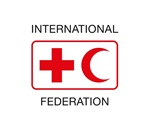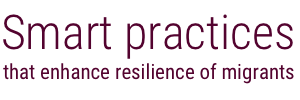Advocacy focusing on a specific issue for a sustained period, with a clear ask on actionable changes. The advocacy operates on the assumption that focus and a clear ask gain the attention of key policy makers more effectively.
The British Red Cross conducted a focused advocacy campaign directed at the government on the move-on-period. The campaign aimed to improve access to information for asylum seekers during the move-on-period. It also aimed to increase the duration of the move-on-period. The British Red Cross worked for two years on this issue through a number of initiatives including the release of The move-on period: an ordeal for new refugees, a report on the impact of the move-on period on asylum seekers in Birmingham and Plymouth. The work of the British Red Cross contributed to a response from the government, which began to send letters to refugees clarifying the process and what they could expect. The government also sent a directive to staff at local job search offices to ensure they provided correct advice to asylum seekers, as staff had sometimes provided misleading information or inaccurate advice. The government also made a commitment to conduct new research on extending the move-on period of 28 days, which is regarded as too short. The government had already completed research it commissioned on this topic in 2013, which showed that 28 days was not sufficient. They have committed to extending the number of days if the new research reaches similar conclusions.
In Finland, the National Society has been advocating for increased government support to individuals with psychological needs.
The advocacy contributed to a commitment to change the law subject to the findings of further research. ~3,000 asylum seekers are supported during the move-on period each year.
Design. [P1] Focus on the vulnerabilities of asylum seekers in Britain;
Implementation. [P4] Recognizes the right of migrants to receive fair treatment when seeking asylum.
- This has been an issue for more than a decade and many earlier campaigns by NGOs had failed.
- A key challenge was to segment destitute migrants and focus initially on those with status. This was done to build momentum, making it possible to campaign subsequently for other groups of destitute migrants.
- Harnessing the power of the Red Cross Red Crescent brand can be used to advocate for change.
- Using clear evidence of the humanitarian problem together with a focused solution is an effective strategy.
Smart practices
Smart practices report and database survey
About the report
People migrate in pursuit of a better life for themselves and their families. As described in the International Federation of Red Cross and Red Crescent Societies’ (IFRC) Policy on Migration, “migrants are persons who leave or flee their habitual residence to go to new places – usually abroad – to seek opportunities or safer and better prospects.
Read more
About the International Federation

